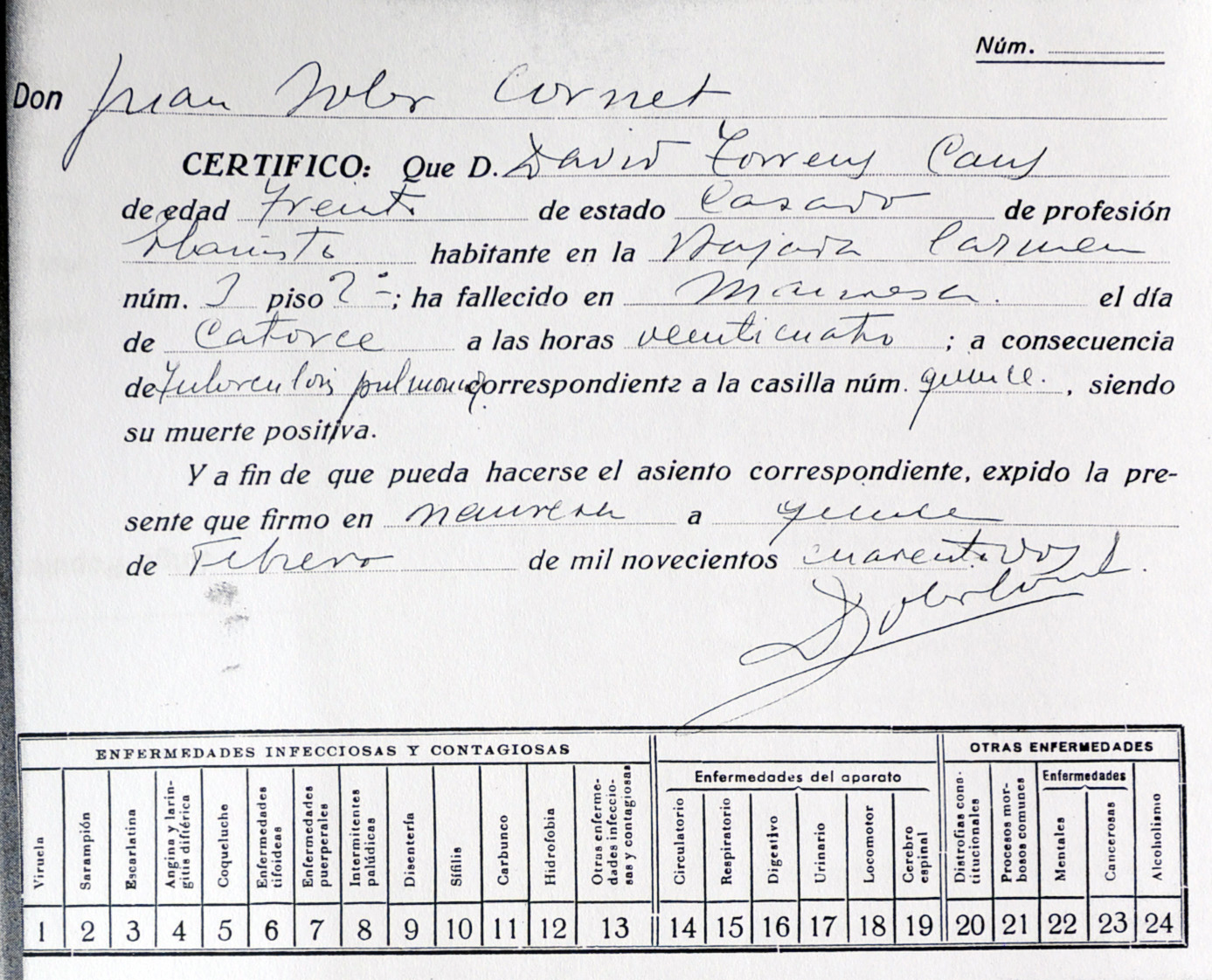A year ago, by All Saints, I posted about Death Certificates, the last document of our administrative life that began with an annotation at the register office. The Certificate of life is another document, one that confirms that an individual is still alive. I may be required in case of payment of pensions and it can be obtained producing a proof of identity to a civil servant or trusted entity.

To be “legally alive” is to be “not legally dead” and this means, basically, to check that air is entering our lungs and our heart is pumping blood trough our arteries and veins. Otherwise we would be clinically dead. Progress in life support techniques enable to maintain those functions even in case of irreversible loss of brain function and the concept of legal death has been extended to consider brain death. Remember that Death Certificates stated the immediate and subjacent causes of death according to the ICD standards; and we could track for the remote causes such as health habits, for instance, dying by a heart attack because of a sedentary life, unhealthy diet and heavy smoking.
What would it be if we were to do something similar with the certificate of life? What if the civil servant had to fill a form about the cause that keeps us alive? The immediate cause is that we breath and out heart is beating, and this means that our basic needs of food and shelter are met. In case of children or disabled people there is a subjacent cause that someone else takes care of them, whether it is family or a public welfare. What for the rest? What makes people struggle to survive finding food and shelter, whether a hunter gatherer in a Borneo forest or jumping from bed every morning to commute by subway to attend the office for a salary? What makes us feel alive (what do we say we want in social media)? In other words, what keeps us from desisting and committing suicide? If the ICD classifies the causes of death, how would one classify the subjacent causes of life?
Let’s try an educated guess.
A first group of causes is mere inertia. As biological organisms we are wired to survive and fight to overcome difficulties. Most of humankind is so exhausted just by surviving that there is no extra energy to get depressed or ask for the meaning of life. As social subjects were are programmed to follow the script or routine of the role we have been assigned or that we have chosen. And eventually, perhaps we go on living because we do not dare to commit suicide.
A second group of causes is to be useful to others, to be for other people. To take care of children, to serve a humanitarian cause, to support a political, religious option, or follow a sports team.
Another group could be “to be trough other people”, to be loved, admired, appreciated, respected, feared, to have many followers at twitter or ‘likes’ at facebook.
Of course, it could be that we want to live because we like it, because it is a rewarding experience. Some will be happy with their ordinary life, others will be frustrated if they don’t get the exceptional, the most awarded restaurant, the highest mountain, the most exclusive trip. The curious ones are going to be fascinated by exploring the world, a new kind of bug, a distant galaxy or a 17th century text.
And finally there would be those who cannot survive without the help of some chemical substances, prescribed drugs, legal drugs such as alcohol or tobacco, or illegal ones, like those who cannot live through the day without their heroin dose.
Quite probably, everybody will have a mix of all types. The Certificate of Life Causes form could be something like this:
CERTIFICATE OF LIFE
IMMEDIATE CAUSES
Mark if independent and if not who is in charge
( ) Independent
( ) Dependent
( ) family or friends
( ) public welfare
SUBJACENT CAUSES Mark if it matters (1 low – 5 high)
GROUP I: INERTIA 12345 Survival instinct 12345 Social routines, follow a script, a mission 12345 Fear of suicide GROUP II: TO BE FOR OTHER PEOPLE 12345 Taking care of someone, children, family, community 12345 Making a difference, saving the world, health research, politics 12345 Belonging to a political or religious group, supporting a sports team GROUP III: TO BE THROUGH OTHER PEOPLE 12345 To be loved 12345 To be appreciated, admired, envied, desired 12345 To be respected, feared GROUP IV: REWARDING EXPERIENCES 12345 Just ordinary life 12345 The exceptional, the foodie, the fashion victim, extreme sports, exotic traveler 12345 Curiosity, exploring the world and culture GRUP V: CHEMICAL HELP 12345 Use or abuse of prescribed drugs 12345 Use or abuse of legal substances, alcohol, tobacco 12345 Use or abuse of illegal drugs










